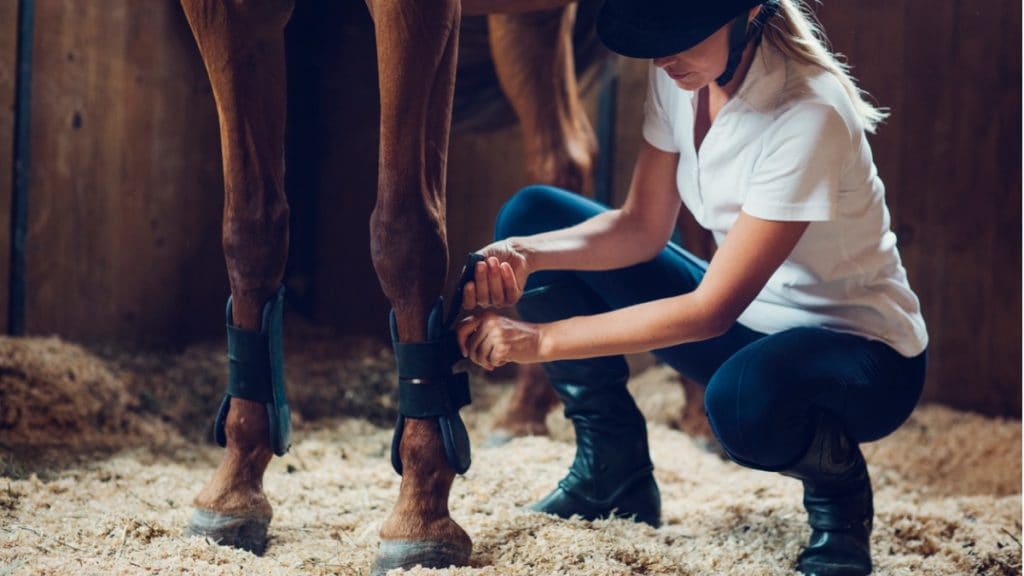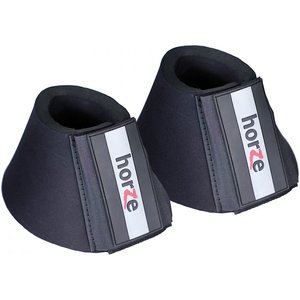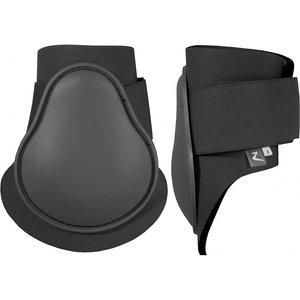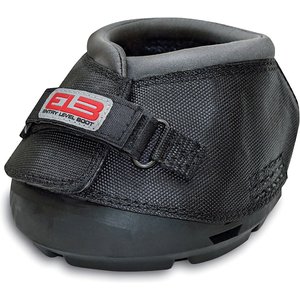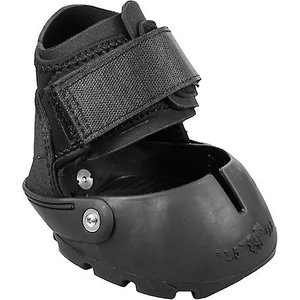No matter how large and sturdy horses appear, horse care requires some special consideration and gear. Most people are familiar with saddles and horseshoes, but there are many other kinds of horse supplies. Horse boots, for example, can help protect a horse’s legs and hooves.
If you’re a seasoned horse owner, you already know there are many horse boots on the market. If you’re newer to the equine world, horse care might seem overwhelming. To help you navigate these handy horse supplies, take a look at eight boots used on horses and how they differ.
The Benefits of Horse Boots
Before learning the ins and outs of horse boots, you need to understand why you’d use them in the first place. In short, pet horses generally don’t pick their own terrain or speed during rides; they are doing what their humans want them to do. This can wear down the horse hoof more quickly.
“Most people shoe their horses these days, if they’re going to be going over terrain that would require that the foot would wear more than naturally,” says Heather Hoyns, DVM, owner of Evergreen Equine of Vermont in West Windsor. “There are a lot of people who choose to put boots on instead. They feel it’s more natural. There’s nothing wrong either way.”
Additionally, a horse’s lower legs don’t have the muscle to protect the bone and tendon, making protection even more important.
“If they get a gash on their leg or an injury, it can be a long-term thing to heal, so I personally like to put protective boots on my horses,” Dr. Hoyns says.
Most horses don’t resist horse boots; they’re used to the routine of the saddle and other horse tack, so boots are no big deal, Dr. Hoyns adds.
Types of Horse Boots
The amount of horse tack available these days can seem endless, and the variety of boots is no exception. Each plays an important role.
Fly Boots
You rarely see a horse without flies humming about. Naturally, horses don’t care for them. While they can get rid of flies on their body easily with their tail or a twitching muscle under the skin, their first line of defense for flies on their legs is stomping.
“Continued stomping can make a horse’s foot sore, bruise their foot or make them lame,” Dr. Hoyns says.
Fly boots, like Kensington Protective Products’ non-collapsing fly horse boots, are designed to keep flies off your horse’s legs.
Splint/Sport Boots
Splint, or sport, horse boots primarily protect the horse’s cannon bone in the legs. Used on the front and back legs, these boots are particularly helpful for dressage horses.
“They’re there to protect the horse’s leg if the horse should … hit something, like when jumping over a fence,” Dr. Hoyns says.
Tough-1 extreme vented sport boots are made with solid support to protect against bumps, bruises and any soreness.
Bell Boots
You’ll often find bell boots under shipping boots. They’re designed to protect a horse’s coronary band at the bottom of the leg.
Damage to the coronary band can cause permanent damage to a horse’s hoof, according to Dr. Hoyns. Bell boots go from around a horse’s ankle area to the ground to help shoes stay on.
“Horses are silly,” Dr. Hoyns says. “They can go racing around and do silly things, and they can pull their shoes off because they slipped, they fell, etc. They’re like 2-year-old children.”
Weaver Leather’s bell boots are made of heavy-duty 2520D ballistic nylon to protect from the hoof to the coronary band. They include double-ply Velcro closures to help keep the boot from slipping.
Polo Wraps
Especially used when a horse is young or in training, polo wraps, like these ones from Derby Originals, go on front and back legs and help protect the legs when riding, Dr. Hoyns says.
“Sometimes horses, like 2-year-old children, don’t do what you like them to do and they’ll throw little tantrums or they’ll slip or something and they’ll hit their leg and get a little cut on it,” she explains.
Fetlock Boots
A horse’s fetlock joint is located above the horse hoof, and damage of this joint can lead to lameness. Fetlock boots help protect the joint. It’s harder to keep these boots on, Dr. Hoyns says, because they’re a shorter boot than others. You could think of them as ankle boots for horses, she adds. Size and fit are particularly important with fetlock boots.
Hoof Boots
A horse’s foot can wear down faster than it grows when the animal walks over some surfaces. Hoof boots “prevent excessive wear on horse’s feet when they’re being ridden,” Dr. Hoyns says.Shipping Boots
Whether being driven to a trail or going to a horse show, horses don’t always stay home. According to Dr. Hoyns, other drivers sometimes cut in front of her, thinking a vehicle with a horse trailer must be traveling slowly. That means a quick stop can equal a potentially injured horse.
That is where shipping boots come in. They’re used only for travel and can help protect the horse’s legs. This set of shipping boots from Weaver Leather, for example, is made from thick ripstop nylon and have a striker plate at the bottom to protect against hoof scuffing. However, because they’re used so rarely, some horses dislike shipping boots, Dr. Hoyns says.
Stable Boots/Wraps
When left to their own devices, horses naturally slow down and walk around a bit after being ridden, Dr. Hoyns says. Horses that are stabled immediately after a ride, however, can’t walk around and can develop leg swelling from a fluid buildup after they’re worked.
It’s particularly an issue with middle-aged or older horses, according to Dr. Hoyns. Stable boots or wraps are used after a horse has been ridden to reduce the chances of post-workout swelling.
Having the proper horse tack, including horse boots, for the type of riding or training you intend to do with your horses is an important step to helping your horse live a long and comfortable life.
Looking for a name for that new horse in your life? Check out our list of top horse names.
Get advice on other horse supplies:
Share:
